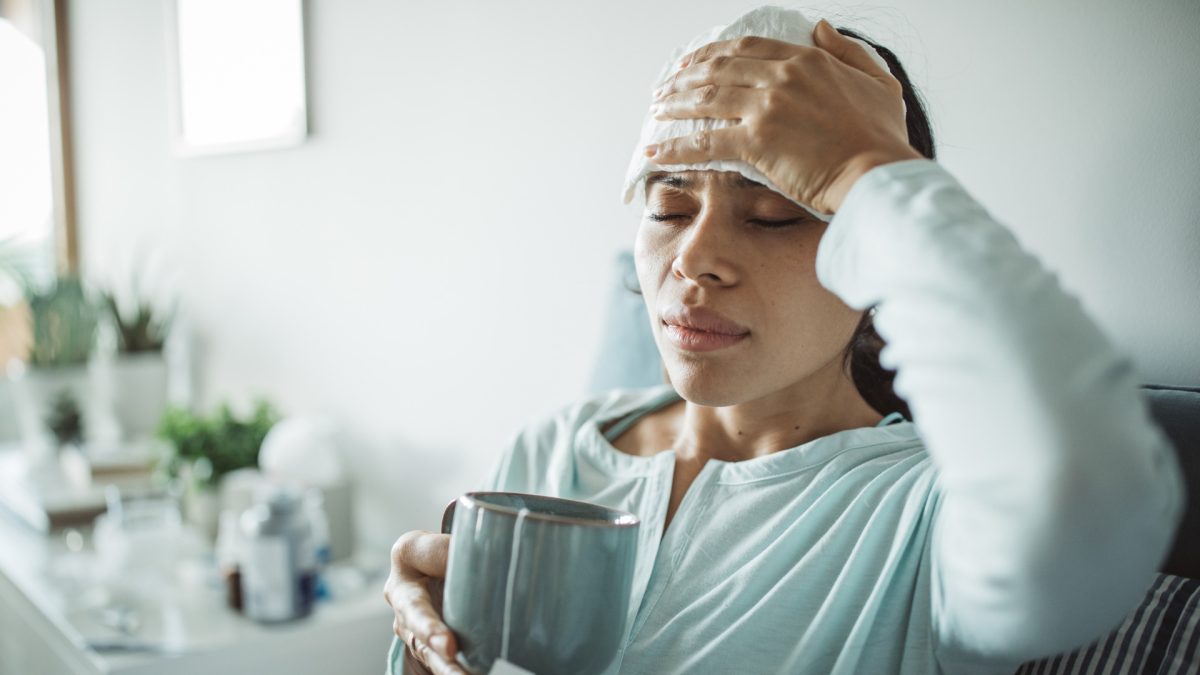Fact Checked
Intus Healthcare’s writers, customer service team, and sleep experts review and ensure this information is accurate.
Last updated on March 7th, 2024 at 10:39 am
Using CPAP with a cold
If you suffer from colds, nasal congestion or a stuffy nose, you may wonder if you should continue using your CPAP (Continuous Positive Airway Pressure) machine. Sinus blockages can make breathing uncomfortable and make your CPAP therapy more difficult. This article will offer simple solutions for using your equipment when you are congested.
Can you use a CPAP with a stuffy nose?
Yes, if a sleep clinic or doctor has recommended CPAP therapy, do not stop using it. Pausing your therapy, even for a few nights, can hugely impact your health. It is always encouraged to continue using your CPAP machine to prevent your Obstructive Sleep Apnoea (OSA) from worsening. When therapy is paused, symptoms such as snoring, choking in your sleep and unrefreshed sleep will return. Therefore, you should continue to use your CPAP if you have a cold, congestion or suffer from an allergy.
Ultimately, using CPAP therapy prevents long-term complications such as diabetes, heart disease and atrial fibrillation, so it is important to use the treatment as much as possible.
CPAP therapy solutions for cold and flu
There are a few things you can do to make using your CPAP machine more effective and your CPAP therapy more comfortable if you have a cold or flu.
Nasal irrigation
Congestion will stop the air from flowing into your nose and decrease the effectiveness of your CPAP therapy. When you have a cold, sinus and nasal care are essential to keep your nasal airways open. Sinusitis and congestion can be easily solved by using nasal irrigation. You could try a manual nasal spray for short-term relief, but for more effective and long-lasting results, you could try a drug-free saline solution.
Daily sinus cleansing with the SinuPulse Nasal Irrigator ensures optimal upper airway relief and helps treat various nasal and sinus-based discomfort.
If you are travelling with your CPAP, try the SinuPulse Traveller Irrigator.
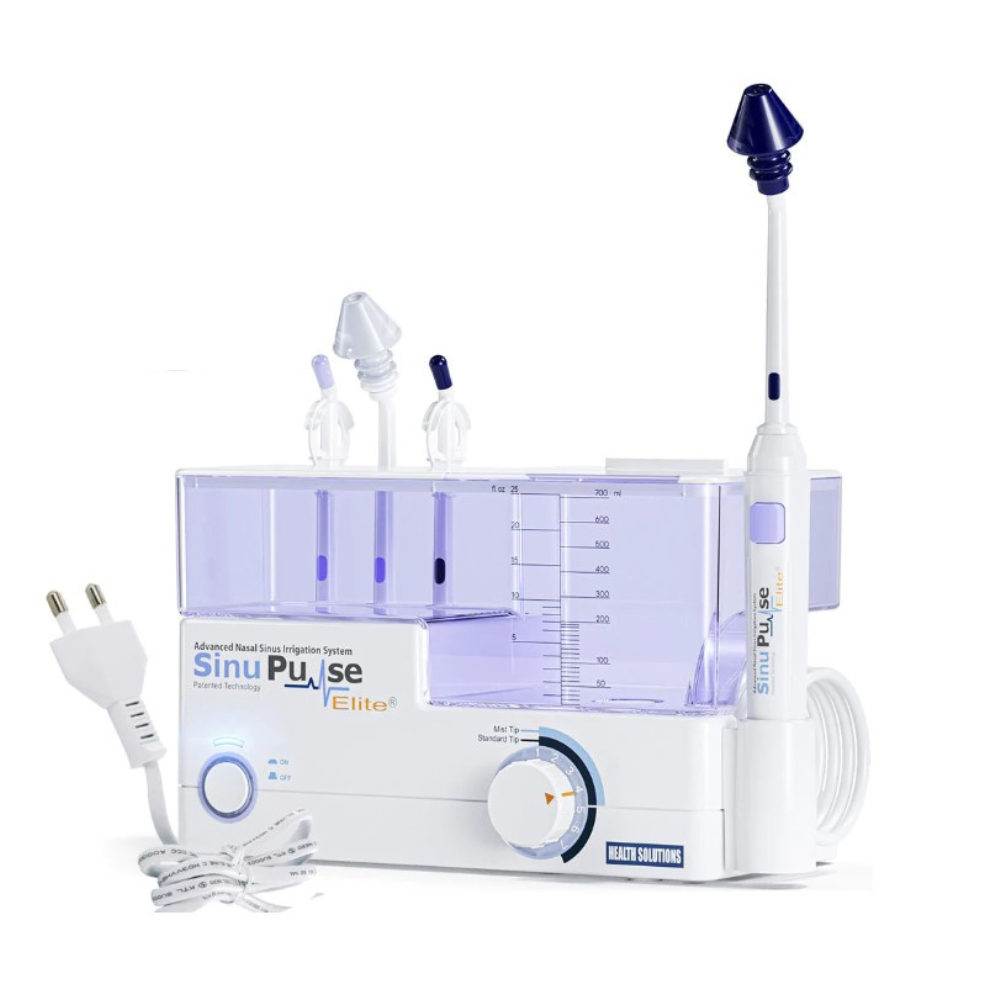
Use a Full-face CPAP mask
When suffering from a stuffy nose, we often automatically breathe through our mouth at night. Using a nasal mask successfully is almost impossible when suffering from a blocked nose. Side effects of using a nasal mask whilst having a cold or flu can include air leaks and a dry mouth.
Switching to a full-face mask allows you to breathe through your mouth comfortably until your nasal congestion has gone.
Newer full-face masks are designed with minimal contact and support side sleeping. Here are a few you could try:
- Ascend AirGel Full Face CPAP Mask: Features the softest gel cushioning.
- Evora Full Face CPAP Mask: Made with soft silicone and breathable technology.
- AirFit F30 Full Face CPAP Mask: Lightweight with under-the-nose cushion placement to reduce leaks.
Once the symptoms of cold and flu have gone, you can go back to using your nasal mask if you prefer.
Add a heated humidifier
For many CPAP machine users, the air pressure is too cold, drying their nasal passages and throat. Humidification is a proven solution for those struggling to become comfortable with their CPAP. Adding a humidifier will warm the air being delivered and therefore moisten your sinuses.
A CPAP humidifier will ease inflamed nasal passages, minimising symptoms of a cold.
Many machines have an integrated humidifier, like the Fisher and Paykel Auto CPAP Sleepstyle. However, many other CPAP machines have a device-specific humidifier option available to purchase.
Add a heated hose or CPAP hose fleece
A common side effect of a humidifier is ‘rainout’. This is when a build-up of condensation (droplets of water) forms in your mask or tube.
Adding a heated hose or a CPAP hose fleece prevents rainout and maximises comfort. These optional CPAP accessories provide the humidity that your airways needs when suffering from a cold.
Top Tip: Tuck your CPAP tube under the covers to keep it warm.
Please note – Most heated hose options are device-specific; for example, the ResMed AirSense 10 can only be used with the Resmed AirSense 10 ClimateLine Air Heated Tube. However, the Hybernite Universal Heated CPAP Tube is compatible with any CPAP machine.
Positional therapy
To make breathing easier, consider changing your sleeping position. Sleeping on your side opens your airways and nasal passages, improving your breathing.
To make side sleeping easier, consider using a CPAP pillow especially if you use a full-face mask. These are designed with cut-outs for your mask to sit in so you can sleep on your side. A CPAP pillow also reduces the risk of red marks and pressure marks from your mask.
Alternatively, keeping your head elevated during the night allows the mucus to drain and prevent a stuffy nose.
Adjust your CPAP pressure settings
It is important to speak to your doctor or sleep clinic if you find your CPAP pressure settings uncomfortable when you have a cold or are congested.
Cleaning your CPAP equipment
Keeping your CPAP supplies clean is essential; it helps to prevent the growth of bacteria and the spread of viruses.
When you’re ill, you’re more likely to be reinfected if you do not clean your CPAP mask, tubing or humidifier.
It is advised to clean your mask daily to prevent future infections. Remember to empty your humidifier water after every use and use distilled water.
The SoClean 2 CPAP sanitiser is an easy way to sanitise your equipment, killing 99.9% of bacteria.
Unsanitised CPAP equipment can cause infections more severe than the common cold, such as bacterial pneumonia.
Helpful article: SoClean 2: All You Need To Know
Cold and flu medication
Over-the-counter medications may help ease your sinus congestion. Antihistamines, throat lozenges, or cough syrup could effectively help you recover. Even a simple lemon, honey and ginger tea can help open your airways.
Intus advice
Although it can be difficult, you should always use your CPAP machine during the winter months. Your CPAP machine will help you feel better if you suffer from a cold, flu or sinusitis.
For any help and advice, please contact us.
CPAP Winter Essentials
-
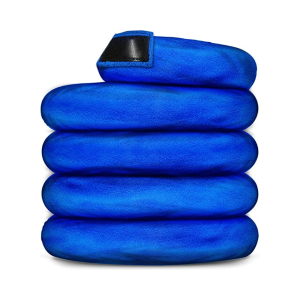 6ft CPAP Hose Fleece Cover£13.99
6ft CPAP Hose Fleece Cover£13.99 -
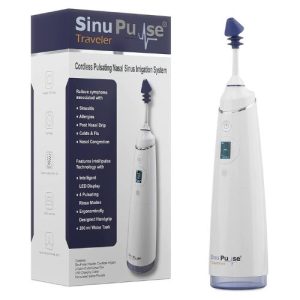 SinuPulse Traveller Nasal Irrigator£74.99
SinuPulse Traveller Nasal Irrigator£74.99 -
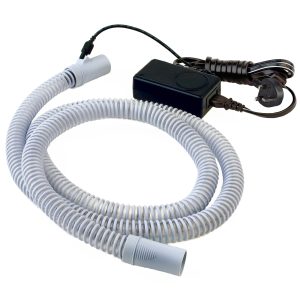 6ft Hybernite Universal Heated 19mm CPAP Tube£6.99 – £64.99
6ft Hybernite Universal Heated 19mm CPAP Tube£6.99 – £64.99 -
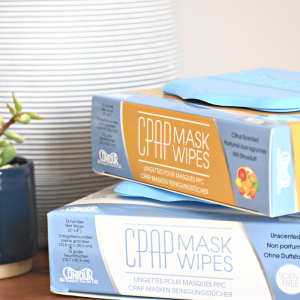 Contour CPAP Cleaning Wipes£11.99
Contour CPAP Cleaning Wipes£11.99

